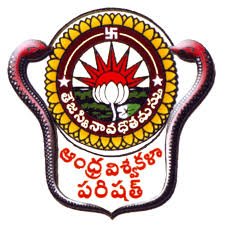Discover the promising future scope and benefits of this program, as it equips you with skills for careers in data science, finance, and decision-making in various sectors.
Exploring the Future Scope and Benefits of M.Tech Forecasting Technology
In today's data-driven world, the ability to predict future trends and make informed decisions based on accurate forecasts is invaluable across various industries. Pursuing an M.Tech. in Forecasting Technology equips graduates with the knowledge and skills needed to excel in the field of forecasting and predictive analytics. This article explores the future scope and benefits of pursuing an M.Tech. in Forecasting Technology.
M.Tech In Forecasting Technology Eligibility Future Scope
1. Data-Driven Decision Making:
With the increasing availability of data, organizations are seeking professionals who can harness the power of data to make informed decisions. Graduates in forecasting technology are well-prepared to assist companies in utilizing data-driven strategies for better planning and resource allocation.
2. Financial Forecasting:
The financial sector heavily relies on accurate forecasting for investment decisions, risk assessment, and portfolio management. Professionals in forecasting technology are in high demand in banking, investment firms, and insurance companies.
3. Supply Chain Management:
Efficient supply chain management requires precise forecasting of demand, inventory levels, and production schedules. Graduates can play a crucial role in optimizing supply chain operations for businesses.
4. Weather and Climate Prediction:
Meteorology and climate science depend on advanced forecasting technology to predict weather patterns, natural disasters, and long-term climate trends. Graduates can work in research and operational roles within meteorological agencies and environmental organizations.
5. Energy Management:
The energy sector requires accurate forecasting to balance supply and demand, optimize renewable energy generation, and improve energy efficiency. Professionals can contribute to the development of smart grids and sustainable energy solutions.
6. Healthcare:
In healthcare, forecasting is used for patient admission predictions, disease outbreak modelling, and resource allocation. Graduates can work on improving healthcare delivery and decision-making processes.
7. Marketing and Sales:
Forecasting technology is vital for businesses in predicting consumer behaviour, sales trends, and market demand. Professionals can assist in developing marketing strategies and optimizing pricing models.
8. Transportation and Logistics:
Efficient transportation and logistics depend on forecasting technology to plan routes, manage fleets, and optimize logistics operations. Graduates can work in logistics companies and transportation agencies.
Benefits of Pursuing M.Tech. in Forecasting Technology
1. High Demand for Specialized Skills:
Graduates with expertise in forecasting technology are in high demand across industries due to the critical role they play in data-driven decision-making processes.
2. Interdisciplinary Knowledge:
This program integrates principles from mathematics, statistics, computer science, and domain-specific areas. Graduates gain a well-rounded understanding of various disciplines, enhancing their problem-solving abilities.
3. Innovation and Research:
Graduates have the opportunity to engage in innovative research and development projects in the field of forecasting, contributing to advancements in predictive analytics.
4. Career Versatility:
The skills acquired are transferable across industries, providing graduates with the flexibility to choose diverse career paths and adapt to different sectors.
5. Global Opportunities:
The skills and knowledge gained are applicable worldwide, offering global career opportunities and the chance to work on international projects.
6. Job Security:
Industries that rely on forecasting technology are less susceptible to economic downturns, offering a level of job security even during uncertain times.
7. Leadership Opportunities:
With experience, graduates can advance to leadership and management roles, overseeing teams and projects in their chosen field.
8. Personal Fulfillment:
Many professionals find personal fulfilment in careers that involve solving complex problems, innovating, and contributing to more informed decision-making.
9. Contribution to Society:
Accurate forecasting can have a positive impact on society by helping to prevent or mitigate disasters, improve healthcare outcomes, and optimize resource allocation.
 2 Years
2 Years
 Post Graduate
Post Graduate
 Engineering
Engineering
 Full Time
Full Time



 back
back

